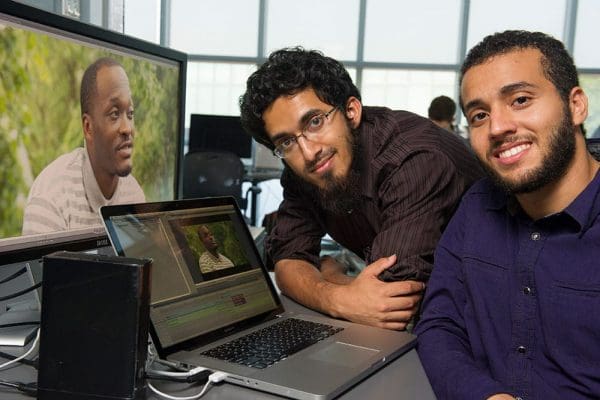Cyber attacks. Biological weapons. Nuclear war. It’s the stuff of big-budget summer blockbusters. It’s also the stuff of Global Security Politics, a course that explores the political implications of weapons of mass destruction and oppression. Taught by Daniel Deudney, an associate professor in the Department of Political Science, the course examines the tensions between knowledge and ignorance, threats and responses, and security and freedom through the study of weaponry in four major areas: nuclear, space, biological, and cybernetic.
In framing his treatment of these emerging technological threats, Deudney leads the class through the essential lessons of what he calls “republican geopolitics,” which examines the ways in which combinations of technologies and geographies indicate what kinds of restraints are necessary to provide security and liberty. The course draws in part from Deudney’s 2008 book, Bounding Power: Republican Security Theory from the Polis to the Global Village, and he says its goal is “to understand the contours of weapons of mass destruction and their relationship to international systems and everybody’s security.
“Most important is to get students to think beyond the concept of nation state and national security being viable anymore.”
Take nuclear weapons, for example. Over a series of hour-long lectures, Deudney details the destruction potential in nuclear weapons, security in the nuclear age, and arguments surrounding proliferation and deterrence. A consummate storyteller, Deudney paces back and forth across the stage of the Arellano Theater in his trademark black suit and dark-framed glasses, making meticulous notes on the white boards, which, by the end of class, will resemble a five-panel mural graffitied with text, diagrams, and sketches. As he writes, he points out the degree of uncertainty about the nuclear question.
“When we come to the question of what is the probability of nuclear war,” he explains to the 100 or so students attending the lecture, “we have no basis to really answer that question. Or the question of what we should do and what is necessary to prevent this cataclysm from happening.
“The most important questions we can’t answer in any empirical way,” he says.
Each time he teaches Global Security Politics, Deudney says, the syllabus content evolves—particularly in the cyber module, where change is constant. But he hopes that students will come away from class with an understanding of their own responsibility for what happens in the world. “The biggest enemy is intellectual complacency,” he explains: “the idea that things are good and going to stay that way.”
Although the focus of the course is the present and future, Deudney’s approach stands on an often unfashionable view of the past. The security problem, he explains, is not simply from the prospect that the “cornucopia of double-edged swords” produced by modern science and technology will be employed for mass destruction, but also that the measures needed to regulate new technologies will lead to oppressive totalitarian government—a prospect the internet makes all too possible.
“We forget,” he says, “how historically rare and precarious political liberty and security were prior to the founding and success of the United States of America,” and we must prepare ourselves for a “future that will require the same combination of luck, sacrifice, and daring innovation” that made our republic possible.
At the end of his lecture, as Deudney gathers his notes, a student approaches and admits with a mixture of appreciation and awe, “This is the only class that makes me scared.”
“If you’re not scared,” replies his professor matter-of-factly, “you’re uninformed.”




